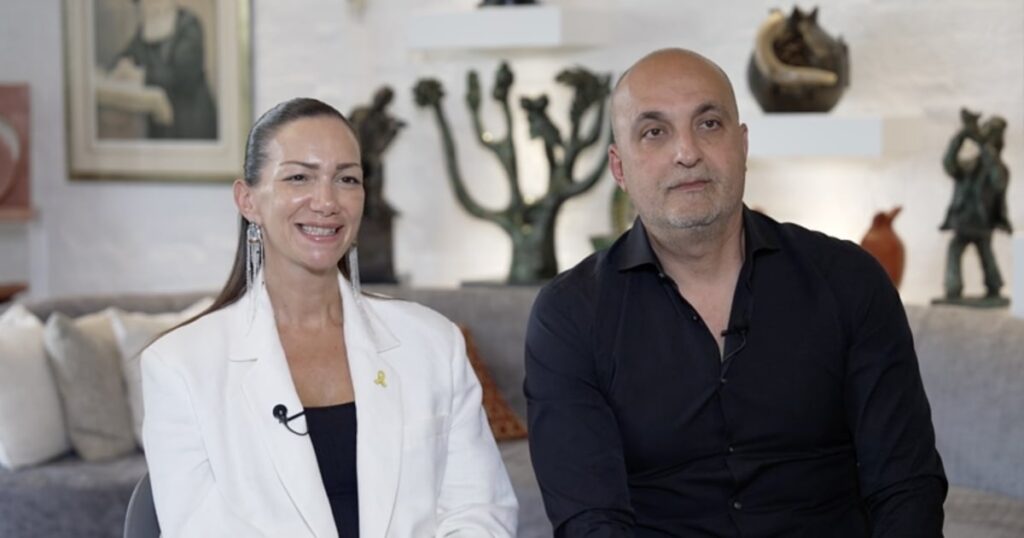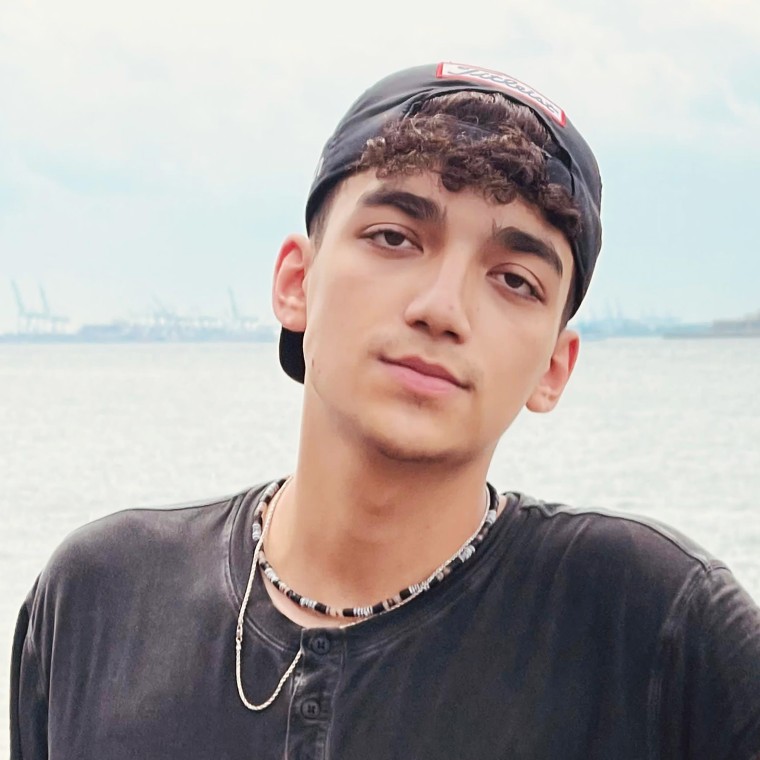
TEL AVIV — On Mother’s Day, Yael Alexander got perhaps the best gift: the news that her son Edan Alexander would be released from Hamas captivity the following day.
One week after that life-changing phone call, NBC News spoke to Yael Alexander and her husband, Adi Alexander, about their son’s more than a year in a captivity and his eventual release.
Edan Alexander, who was believed to be the last living U.S. citizen held captive in Gaza, was freed on May 12 after having been captured by Hamas during its Oct. 7, 2023, terrorist attack on Israel.

Born in Tel Aviv, Edan, 21, grew up in New Jersey but had returned to Israel to serve in the army. His parents said he recounted to them the details of his capture and his time in captivity.
Attacked on his army base on Oct. 7, Edan faced off with almost 30 militants by himself before he was kidnapped, Adi Alexander said. His son called the first year in captivity “complete hell,” he said, because he was frequently moved around to various locations above ground, underground and in tents, at one point during the war living in a tent that, his father recounted, Edan said he couldn’t leave for weeks.
“The conditions in those tents are not easy. They couldn’t get out,” Adi said, noting that Edan’s time in the tent was his “toughest period” in captivity.
Edan was in good physical shape when he was taken, whereas a number of other captives, including injured people, children and the elderly, weren’t, Adi said, so Edan helped those being held with him, especially when they moved between locations.
Edan endured hunger, eating only hummus, pita bread, rice and whatever his captors served him from cans, his father said, a reflection of the food scarcity in Gaza since the start of the war. Fears of famine have heightened there in recent weeks as Israel has carried out a nearly three-month blockade on the enclave — the longest of its kind since the start of the conflict.
Israel said Sunday it would begin allowing limited resources to flow into the Gaza Strip to avoid a “hunger crisis.” Worries of such a crisis aren’t new, with aid groups warning about such conditions for months as a result of Israel’s military operation.
Food began to flow more regularly during the fragile January ceasefire brokered during the Biden administration, offering the hostages an opportunity to eat meat, Adi Alexander said. Edan told his parents conditions improved during what Adi called the “second phase” of his son’s captivity — after Donald Trump was elected president.
By then, he said, Edan, who had lost about a quarter of his body mass, stayed in one “secure and safe” location for the rest of his time in Gaza and was able to regain some weight.
Adi lauded his son’s “wisdom to get along with the captors and survive,” even when death from bombardments by the Israeli army — which he said Edan described as “like an earthquake” — seemed possible. At one point, Edan also survived a tunnel collapse, his father said.
“We consider ourselves lucky that he survived that day,” Adi said of the collapse. “He has some injury from that event, but I don’t think it’s something major now.”
Adi said he and his family were devastated when the ceasefire collapsed and “the war re-started.”
On May 5, Israeli Prime Minister Benjamin Netanyahu announced an intensive military operation aiming to take the whole of the Gaza Strip in an effort to eliminate Hamas, a move approved by the country’s security Cabinet.
But the plan hasn’t been without pushback. A number of military reservists have rejected the call to serve in the operation, saying it is part of a war that has become politically motivated. At a Knesset committee meeting this month, the father of one of the remaining hostages called on soldiers “not to report for reserve duty for moral and ethical reasons.”
More than 1,200 people were killed in Hamas’ Oct. 7, 2023, attack on Israel, and around 250 hostages were taken, according to Israeli tallies. Fifty-eight hostages are believed to remain in captivity.
More than 53,000 people — many of them women and children — have been killed in Gaza in the resulting war, according to health officials in the enclave, which Hamas has run since 2007.
Talks to end the war have stalled, even as many Israelis urge their leaders to bring the rest of the hostages home. Adi Alexander expressed reservations about the “mixed massaging.”
“My hope is that it’s just a political posture,” he said of Netanyahu’s plan for an expanded military operation. “My expectation is going back to the bargaining table, rising above politics and prioritizing human life.”
The Alexander family knows all too well the suffering of the hostages.
Yael Alexander recalled how her son said he held on to hope in captivity, thanks in part to seeing glimpses of his family on the news.
“He saw us,” she said. “He knew we were fighting for him.”
Their fight culminated on Mother’s Day with a call from Steve Witkoff, Trump’s special envoy to the Middle East, who told the Alexanders that Hamas would be announcing the release of their son momentarily.
Yael said she immediately packed her things and got the next flight to Israel. Adi and their other children followed on a later flight.
“It was perfectly timed, and everyone was together just one time,” Yael said of Edan’s release. “It was amazing.”
Despite being a bit thinner, paler and weaker, Yael said, her son is the same as before he was captured, and in their first conversation since his kidnapping, he joked that he needs a tan.
“It’s the same laughter, the same smile, the same kind eyes,” she said. “This is our boy.”
 Latest Breaking News Online News Portal
Latest Breaking News Online News Portal




